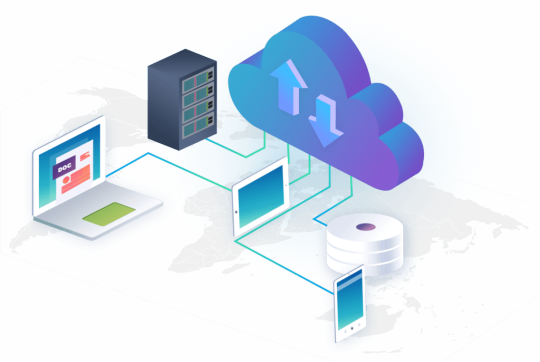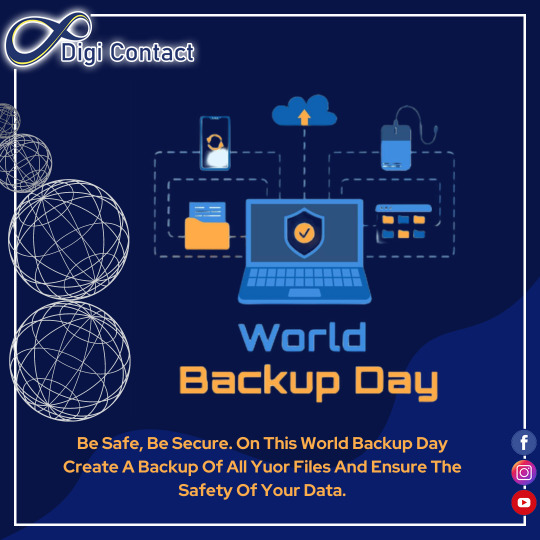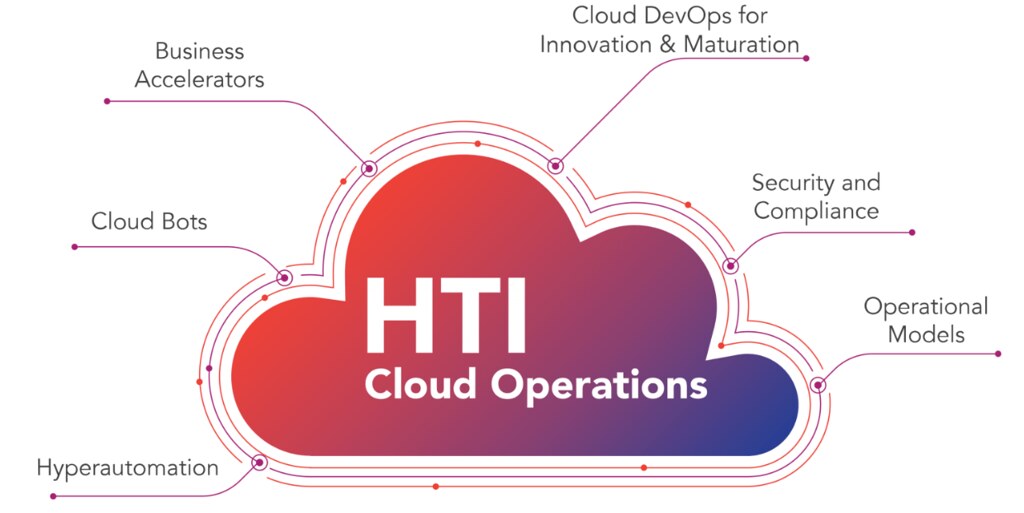#cloudbackup
Link
Cloud Backup and Data Archiving
0 notes
Text
XDR là gì? Cơ chế hoạt động, chức năng chính và lợi ích sử dụng
Với sự phát triển của công nghệ và xã hội, các mối đe dọa an ninh mạng cũng ngày càng nguy hiểm và đem đến nhiều rủi ro. Điều này đặt ra một bài toán khó cho các chủ doanh nghiệp hay đội ngũ chuyên viên bảo mật về một giải pháp tối ưu. XDR được sinh ra để giải quyết vấn đề này với những ưu việt về cơ chế hoạt động, chức năng hay lợi ích khi sử dụng.
#CLOUDBACKUP#CLOUDCYBERPROTECTION#DATALOSSPREVENTION#DATAPROTECTION#DISASTERRECOVERY#CYBERPROTECTION#CYBERSECURITY
0 notes
Link
Samsung поможет нуждающимся пользователям. И это бесплатно Невозможно устоять перед впечатлением, что производители стараются «ограбить» покупателей, как могут, но иногда проявляют щедрость. Samsung анонсировала полезную услугу совершенно бесплатно, хотя есть один «маленький» нюанс.
0 notes
Text
Samsung’s Transient Cloud Backup:The Ultimate Data Security

Globally, Samsung Electronics Introduces Transient Cloud Backup
An easy and safe method to preserve vital information
Temporary Cloud Backup, a safe and convenient solution to store and transfer essential data, is now available worldwide. This function is meant to give comfort and confidence to Samsung Galaxy customers who might be worried about losing their data, which includes private files, movies, and images. It emphasises Samsung’s ongoing dedication to provide strong, integrated experiences that facilitate people’ daily lives.
“Users can easily and dependable backup and restore critical data using temporary cloud backup,” stated Chiyoung Seo, Vice President and Head of Cloud Team, Mobile eXperience Business, Samsung Electronics. “With the connected power of the Galaxy ecosystem, this enhanced switching experience based on Samsung Cloud aims to give Samsung Galaxy users peace of mind that precious data will not be lost.”
Through their Samsung Account, users have the option to upload their data to Samsung Cloud storage, where it is securely stored and available for retrieval at any time. The service is free of charge, with no maximum storage amount; however, the size of each file can only exceed 100GB. Wi-Fi is necessary for data transfer, however using a PC or any other external memory device is not necessary.
Up to 30 days from the date of the user’s first backup, data is kept on file. Users will have the option to recover their data at any time during this time. Before their data is immediately erased, users are alerted when their time limit is about to expire.
One Less Concern During Maintenance or Replacing
Temporary Cloud Backup is a great tool to make sure that data is safe in a variety of situations when consumers would be concerned about losing it, as while having a smartphone fixed. In order to guarantee that private information stored in the Secure Folder on a device, as well as other personal data, may be securely backed up for retrieval during repairs, Samsung now incorporates the Temporary Cloud Backup feature into Maintenance Mode.
Additionally, this capability will make upgrading devices easier for Samsung Galaxy consumers and reduce the anxiety associated with transitioning between smartphones. Temporary Cloud Backup offers a dependable and easy method for anyone waiting on their new preorder gadget to arrive to move their data. Before doing a complete reset on an outdated device, users may rest comfortable knowing that their data is easily recoverable at any moment.
As part of the Setup Wizard, users can recover their data while setting their new device for the first time. Even if they bypass this step, they can always locate the Temporary Cloud Backup using Maintenance Mode or the Reset feature, which makes free and simple restoration possible whenever it’s convenient for them.
The most recent addition to Samsung Cloud is Temporary Cloud Backup, which helps customers reduce the possibility of losing data on misplaced, stolen, or damaged Samsung Galaxy devices.
Users may be more certain that the process of uploading and restoring their data is safe since it is a simple, safe, and seamless experience safeguarded by Samsung Account’s two-factor verification for data backup and restoration on Galaxy devices. Among the continuous initiatives to enhance and optimise the mobile experience for consumers throughout the Galaxy ecosystem is Temporary Cloud Backup.
Starting this autumn, all Samsung Galaxy tablets and smartphones running One UI will get the complete worldwide deployment of Temporary Cloud Backup. In Korea, this will begin with Galaxy S and Z series devices.
With reference to Samsung Electronics Co., Ltd.
Samsung’s revolutionary concepts and innovations inspire people all across the world and help to build the future. The firm is revolutionising the markets for digital appliances, network systems, smartphones, wearable technology, tablets, TVs, memory, system LSI, foundry, and LED solutions.
Read more on Govindhtech.com
0 notes
Text
Choosing the Right Password Manager

Choosing the right password manager is crucial for your online safety. Learn how to make the perfect choice in our latest blog!
Read the blog
#relypass#relypassapp#iosapp#passwordmanager#freepasswordmanager#freeiosapp#iospasswordmanager#passwordprotect#passwordapp#secureapp#affordableapp#affordableiosapp#cloudbackup#password#cybersecurity#technology#security#privacy#tech#dataprotection#datasecurity
0 notes
Text
How to Protect Against Data Loss with Cloud Backup?
#CloudBackup#dataprotection#dataloss#business#storage#businessnews#technology#newsupdate#trendingnews#technologynews
0 notes
Text
Ensuring Data Protection and Business Continuity

In today's digital era, managing and securing data backups is essential for organizations of all sizes. Cloud backups have emerged as a reliable solution for storing and protecting critical data. However, effective management of cloud backups is equally important to ensure data availability, integrity, and efficient recovery. In this blog post, we will explore some best practices for managing cloud backups, helping you safeguard your data and maintain business continuity.
Define a Backup Strategy: Start by establishing a comprehensive backup strategy that aligns with your organization's needs. Determine the frequency of backups, retention periods, and recovery objectives. Consider the criticality of data and prioritize accordingly. A well-defined backup strategy serves as a foundation for efficient cloud backup management.
Choose the Right Cloud Backup Provider: Selecting a reputable and reliable cloud backup provider is crucial. Evaluate factors such as data security measures, encryption protocols, data redundancy, service-level agreements (SLAs), and scalability. Look for providers with a proven track record in the industry and positive customer reviews.
Conduct Regular Data Audits: Perform periodic audits of your data backups to ensure that all critical data is being appropriately protected. Regularly review backup logs, data consistency, and any error or warning messages. These audits help identify any gaps in backup processes and allow for timely adjustments.
Implement Data Encryption: Data encryption is a fundamental aspect of cloud backup security. Ensure that your backup solution supports encryption both in transit and at rest. Encrypt sensitive data before it leaves your organization's environment and select encryption algorithms and key management practices that meet your security requirements.
Test Backup Restorations: Don't wait for a disaster to strike before testing your backup restoration process. Periodically perform restoration tests to validate the integrity and recoverability of your cloud backups. This practice helps identify any issues or potential limitations in the recovery process, enabling you to fine-tune your backup strategy.
Use Incremental and Differential Backups: To optimize storage utilization and reduce backup duration, leverage incremental and differential backups. Instead of backing up entire datasets every time, these methods only capture and store changes since the last backup. This approach minimizes backup windows and reduces bandwidth consumption.
Implement a Backup Schedule: Establish a consistent backup schedule that ensures regular and timely backups. Automate the backup process whenever possible to eliminate the risk of human error and ensure data is protected according to the defined strategy. Regularly review and update the schedule to accommodate changing business needs.
Monitor Backup Health and Performance: Continuously monitor the health and performance of your cloud backups. Utilize monitoring tools to track backup success rates, storage utilization, and overall system performance. Proactively address any anomalies or failures to maintain data availability and reliability.
Secure Access and Authentication: Implement robust access controls and authentication mechanisms to prevent unauthorized access to your cloud backups. Utilize strong passwords, multi-factor authentication (MFA), and role-based access controls (RBAC) to limit access to authorized personnel only. Regularly review and update user permissions.
Maintain Off-Site Backups: Diversify your backup strategy by maintaining off-site backups. Storing copies of critical data in geographically separate locations provides an additional layer of protection against natural disasters, regional outages, or other unforeseen events. Consider utilizing a different cloud provider or physical storage options for off-site backups.
Conclusion: Effectively managing cloud backups is paramount for ensuring data protection, business continuity, and peace of mind. By following the best practices outlined in this blog post, you can establish a robust cloud backup management framework. Remember to regularly assess and update your backup strategy to align with evolving business needs and advancements in cloud backup technologies. With proper management, your organization can safeguard its data assets and recover swiftly from any potential data loss scenarios.
#cloudbackup#backup#cloudstorage#cloud#databackup#datastorage#computersolutions#dataprotection#serversolutions#networkcabling#data#technology#microsoft#cloudcomputing#datasecurity#zerodowntime#cloudservices#the#serverupgrades#privatecloud#itservices#serverroom#deployments#datacenter#manageditservices#migrations#storage#backupdata#solutions#servermaintenance
0 notes
Text
The benefits of cloud computing solutions for businesses in 2023
Introduction:
Cloud computing has transformed how businesses function by delivering flexible, scalable, and cost-effective solutions. As we approach 2023, the benefits of cloud computing become increasingly important. In this blog post, we will look at the advantages of cloud computing for businesses and how R Plus can assist you in leveraging these solutions to move your organization forward.
Scalability and Flexibility: Scalability and flexibility are two fundamental advantages of cloud computing. Businesses can quickly scale up or down their computing capacity based on their current demands. Cloud computing enables you to efficiently manage resources, whether you need to handle greater traffic during peak hours or adjust resources during off-peak periods. Businesses can use this flexibility to reduce expenses and avoid over-provisioning or under-utilization of resources.
Cost Efficiency:
Cloud computing offers cost advantages by eliminating the need for significant upfront investments in infrastructure. Businesses can use cloud solutions to access computer resources on-demand and pay only for what they use, converting capital expenses into operational expenses. Furthermore, cloud services cut costs associated with maintenance, updates, and hardware/software replacements because the cloud service provider handles these obligations.
Enhanced Collaboration and Accessibility:
Cloud computing facilitates seamless collaboration and increases corporate accessibility. Team members can work on projects from multiple locations at the same time, accessing and sharing files in real time. Cloud-based productivity tools and collaboration platforms make it possible to communicate, share documents, and manage projects more effectively. This accessibility fosters collaboration, boosts productivity, and eliminates geographical obstacles.
Improved Security and Data Protection:
Cloud service companies prioritise infrastructure security and spend extensively in robust security measures. Storing data in the cloud protects it against physical damage, theft, or loss. Cloud systems often provide extensive data encryption, access controls, and regular backups, allowing enterprises to deploy a better level of security than they could otherwise have. Furthermore, cloud solutions facilitate compliance with data privacy rules and industry standards.
Disaster Recovery and Business Continuity: In the case of a disaster or unforeseen incident, firms must recover swiftly and with as little downtime as possible. With data replication across several servers and geographically different locations, cloud computing provides dependable disaster recovery options. This redundancy protects against data loss and allows firms to quickly restart operations. Cloud-based backup and recovery options give you peace of mind, knowing that your vital data and systems are safe and can be rapidly restored.
Competitive Advantage and Innovation: Cloud computing enables firms to stay ahead of the competition in a highly competitive environment. Cloud solutions provide the infrastructure and tools required for innovation, allowing businesses to build, test, and deploy new applications and services in a timely manner. Organisations can use cloud-based resources to experiment with emerging technologies such as artificial intelligence, machine learning, and the Internet of Things (IoT) without making large expenditures in infrastructure or specialized knowledge.
Cloud computing solutions have several advantages that can help businesses develop and succeed in 2023 and beyond. Businesses can use the cloud to stay nimble, competitive, and resilient by leveraging its capacity for scalability and cost effectiveness, as well as improved collaboration, security, and creativity. Working with R Plus, a reputable provider of cloud computing solutions, may help you realize the full potential of the cloud and propel your company to new heights.
Are you ready to reap the benefits of cloud computing for your company? Contact R Plus today to learn how our comprehensive cloud solutions can help your business. We’ll help you realize the full potential of the cloud by leveraging our experience, cutting-edge technology, and dedication to your success.
#rplus#CloudComputing#CloudSolutions#Scalability#Flexibility#CostEfficiency#Collaboration#Accessibility#CloudBackup#DigitalTransformation#CloudInfrastructure#CloudServices
0 notes
Text
WorldBackupDay!
Happy World Backup Day! May your data always be backed up and your files never be lost.
.
.
.
https://www.facebook.com/DigiContactOfficial

#BackupYourData#ProtectYourData#BackupAndRestore#DataBackup#DigitalBackup#BackupSolutions#DataSecurity#CloudBackup#BackupDay#digicontact
1 note
·
View note
Link
Cloud Backup and Data Archiving
0 notes
Text
Magento 2 Cloud Backup
Backup your important Magento 2 data on the cloud storage using Meetanshi’s Magento 2 Cloud Backup.

Data is the new currency, and fuels the eCommerce businesses. No online business owner can afford losing their important data. Therefore, it becomes essential for them to back up their store’s data regularly to avoid data loss in case of any technical incidence.
To avoid such incidences for Magento 2 stores, Meetanshi has developed Magento 2 Cloud Backup Extension to automatically backup store’s data to Google drive and Dropbox. It is a must-have extension for the store owners handling copious amount of data in their online store.
The extension can take backup of the complete Magento 2 store backup, and also offers options to take individual backups of database and media. Moreover, it also supports scheduling automatic backups of the store’s data. The admin can set the frequency and time for the scheduled data backups.
Features of Meetanshi’s Magento 2 Cloud Backup:
�� Keep backup of your store’s important data to tackle any kind of data loss instances.
● Provides different options to take backup of Magento 2 database, media, and system backup.
● Store owners can choose to take backup either in Do not Pack DB File, or Pack file by GZ compressor.
● Supports automatic and manual backups of the store data from the admin backend.
● The extension supports backing up data to Google drive and Dropbox.
● Easy integration with the cloud storage accounts through the authorization credentials received from Google drive and Dropbox.
● Option to schedule automated Magento cloud backups daily, weekly, or monthly.
● The admin can set the time to perform the scheduled Magento cloud backup.
● Option to receive email notifications in case of successful cloud backup.
● Automatic delete old backups after specific number of days.
● Secure your online store’s data from any kind of data loss incidents.
Read more at: https://meetanshi.com/magento-2-cloud-backup.html
0 notes
Text
Top 12 giải pháp bảo mật cơ sở dữ liệu tối ưu nhất [Cập nhật 2024]
Cơ sở dữ liệu có thể coi như trái tim của một doanh nghiệp khi chứa đựng tất cả những thông tin, dữ liệu quan trọng từ mọi nguồn. Do đó, doanh nghiệp cần quan tâm đến các giải pháp cho việc bảo mật cơ sở dữ liệu để hạn chế những rủi ro bị tấn công hay mất mát thông tin. ITSUPRO sẽ chia sẻ 12 giải pháp tối ưu nhất trong năm 2024 mà doanh nghiệp có thể áp dụng.
#CLOUDBACKUP#CLOUDCYBERPROTECTION#DATALOSSPREVENTION#DATAPROTECTION#DISASTERRECOVERY#CYBERPROTECTION#CYBERSECURITY
0 notes
Photo

SingleCart mPOS is a feature-rich and multi-purpose mobile app that will ease your business operations. The mPOS app is packed with all the necessary features for you to manage your Store. In addition, you can also manage your own web store with this all-in-one mPOS app.
Get it on Google Play Store: https://bit.ly/38D9gHt
📧 : [email protected]
🌐 : https://singlecart.io/
#business#cloudbackup#product#onlinestoremarketing#businessowner#webstore#QRCode#mpos#data#cloud#possoftware#billingsoftware#possoftwaresystem#possystem#software#retailposapp#posplatform#pos#retail#retailpos#customer#ecommerce#smallbusiness
0 notes
Photo

We ensure a secure back-up for your website. Contact us to know more! . . . #cloudbackup #backup #websitedevelopment #websitedesigner #dsmtechservice https://www.instagram.com/p/Cj2kGMiP8fm/?igshid=NGJjMDIxMWI=
0 notes
Video
Manage Cloud Operations by Nisha Kaur
Via Flickr:
HCTI’s Cloud Operation solution relies on hyperautomation, cloud bots, cloud DevOps for Innovation & Maturation with continuous compliance & governance. www.healthcaretriangle.com/next-gen-cloud-operations/
0 notes
